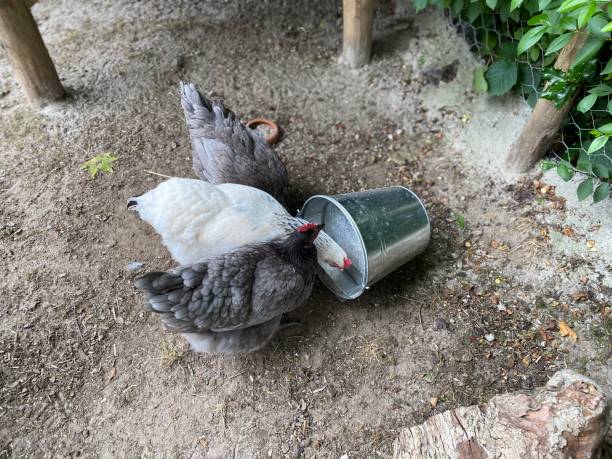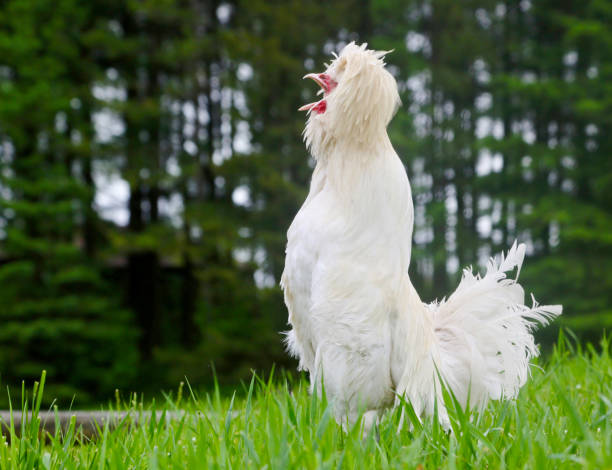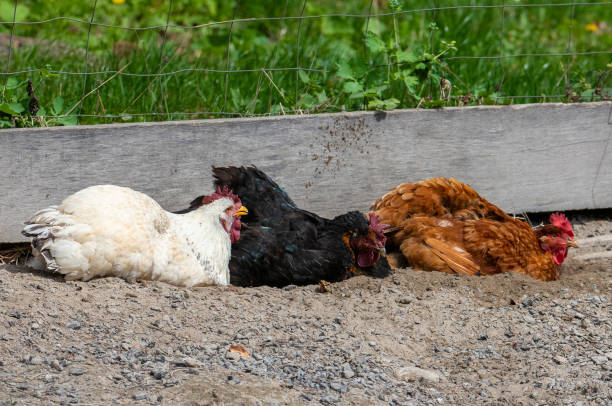Winter can be challenging for backyard chicken keepers, especially when temperatures drop and water freezes over. Providing your flock with fresh, unfrozen water is essential for their health and well-being. So, how do you keep chickens’ water from freezing, especially in freezing temperatures? Whether you’re looking for non-electric solutions or don’t mind using a bit of electricity, we’ve got you covered.
In this guide, we’ll explore why keeping water from freezing is important, along with the best methods to ensure your chickens always have access to liquid water during the cold months.

Why Is It Important to Keep Your Chickens’ Water From Freezing?
Chickens need constant access to fresh water to stay hydrated, regulate their body temperature, and maintain egg production. In winter, dehydration can become a serious issue if water sources freeze. Without enough water:
- Chickens may stop laying eggs.
- They can become stressed or sick.
- Dehydration may weaken their immune system, making them more vulnerable to cold-related illnesses.
Ensuring water doesn’t freeze isn’t just convenient—it’s vital for a healthy, happy flock.
How to Keep Water From Freezing Without Electricity
For those living off-grid or wanting to save energy, keeping your chickens' water from freezing is possible with a few creative and low-tech solutions. These methods are not only effective but also budget-friendly and easy to implement.
1. Insulate the Water ContainerThink of insulation as a cozy winter coat for your waterer. By adding layers of protection, you can slow the freezing process and extend the amount of time your chickens have access to fresh water.
- Bubble Wrap or Foam: Wrap the waterer tightly in bubble wrap, foam sheets, or even an old blanket to trap warmth. Secure the materials with duct tape or bungee cords.
- DIY Insulated Box: Build a small insulated enclosure using materials like plywood and Styrofoam. Cut a small opening for your chickens to access the water while keeping most of the cold air out.
Tip: Place the insulated waterer in a wind-sheltered spot, like inside the coop or next to a wall, to reduce the chilling effects of the wind.
2. Use Black Water ContainersHarness the power of sunlight! Black water containers naturally absorb and retain heat better than lighter colors, even on overcast winter days. Switching to black-colored buckets or bowls can make a noticeable difference in delaying ice formation.
Bonus: Position the black container in a sunny spot for maximum heat absorption during the day.
3. Add Ping Pong BallsHere’s a quirky yet effective trick! Floating ping pong balls in your chickens’ waterer keeps the surface water moving. The constant motion, caused by wind or the chickens’ pecking, disrupts ice from forming as quickly.
Note: Ping pong balls are inexpensive and can be reused all season. Just clean them regularly to prevent dirt buildup.
4. Create a “Sunroom” for the WaterWhy not give your waterer a mini greenhouse? Set up a clear plastic enclosure around the water dish, like an upside-down storage bin or a DIY frame wrapped in clear plastic sheeting. The greenhouse effect traps heat from the sun, raising the temperature slightly and slowing freezing.
Pro Tip: Make sure there’s enough ventilation to prevent condensation from building up, which could freeze overnight.
5. Saltwater Bottle HackThis old standby is a lifesaver for cold mornings.
- Fill a sealed plastic bottle with a strong saltwater solution (use rock salt or table salt).
- Place the sealed bottle in the water dish.
The saltwater in the bottle doesn’t freeze as easily, helping keep the surrounding water liquid for longer.
Important: The saltwater bottle is for temperature regulation only—do not let your chickens drink it.
6. Old Tires for InsulationHave an old tire collecting dust? Repurpose it!
- Place your water container inside the tire, which acts as an insulator, trapping heat and protecting the water from freezing winds.
- For extra effectiveness, fill the tire with straw, hay, or sawdust to add another layer of insulation.
When all else fails, the simplest solution is to refill your waterer with warm water multiple times a day.
- Use warm—not boiling—water to prevent shocking your chickens.
- Check the water frequently during extreme cold to ensure it stays drinkable.
Tip: This method works best for small flocks or if you’re home throughout the day to monitor the water.

How to Keep Water From Freezing With Electricity
For chicken keepers with access to electricity, there are several efficient and low-maintenance solutions to keep water thawed, even in the harshest winters.
1. Poultry Water HeatersDesigned specifically for chicken coops, these heaters fit under standard waterers and gently warm the water to prevent freezing.
- They’re safe, energy-efficient, and easy to use.
- Most models are built for outdoor use and come with automatic temperature regulation to prevent overheating.
Note: Always choose heaters certified for poultry use to ensure safety for your flock.
2. Heated Bell WaterersThese are a great option for larger flocks. Heated bell waterers combine traditional water dispensers with built-in heating elements that keep water flowing in freezing temperatures.
- They often have large capacities, making them ideal for those with many chickens.
Looking for a quick and affordable fix? Heated dog bowls work perfectly for chickens, especially smaller flocks.
- Choose a dish with low wattage and safety features like automatic shutoff to prevent overheating or electrical hazards.
- Place the dish in a secure spot to minimize tipping or accidental spills.
Pro Tip: These are widely available at pet stores and often cheaper than poultry-specific heaters.
4. Electric Heated BasesAlready have a waterer you love? Simply place it on an electric heated base. These bases keep the water warm enough to prevent freezing and are designed to work with both plastic and metal waterers.
- Look for models with thermostats for energy efficiency.
- Always ensure the cord is protected to avoid curious chickens pecking at it.
Safety Tip: Double-check that all electrical components are outdoor-rated and moisture-resistant to avoid any hazards.

Tips for Success
- Regular Checks: Even with the best methods, check waterers daily to ensure they’re working as expected.
- Avoid Unsafe Materials: If using heat, ensure all materials are fire-safe and designed for outdoor use.
- Elevate the Waterer: Keep waterers off the ground to reduce contact with cold surfaces and prevent freezing from below.
- Prepare for Power Outages: If relying on electricity, have a backup plan in case of outages.
Final Thoughts
Keeping your chickens’ water from freezing during winter is crucial for their health and comfort. Whether you’re opting for non-electric hacks like insulated containers and black waterers or electric solutions like heated water bases and poultry heaters, there’s a method to suit every setup. With a little planning and the right tools, you can keep your flock hydrated and thriving all winter long.
Ready to try these tips? Your chickens will thank you with happy clucks and steady egg production all season!



Laisser un commentaire
Tous les commentaires sont modérés avant d'être publiés.
Ce site est protégé par hCaptcha, et la Politique de confidentialité et les Conditions de service de hCaptcha s’appliquent.